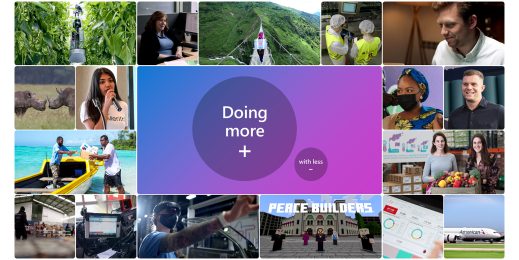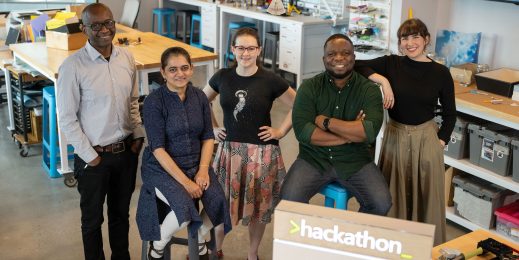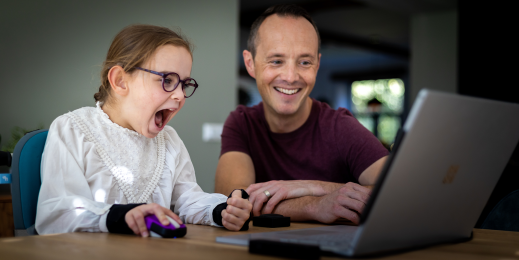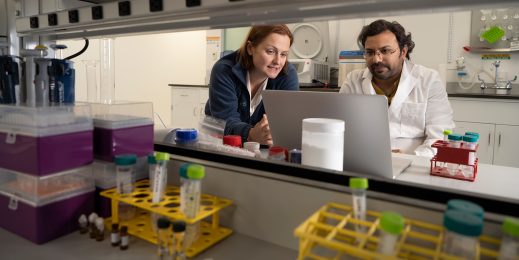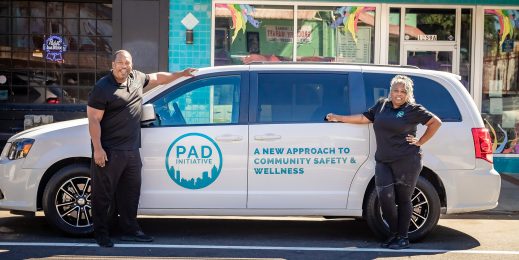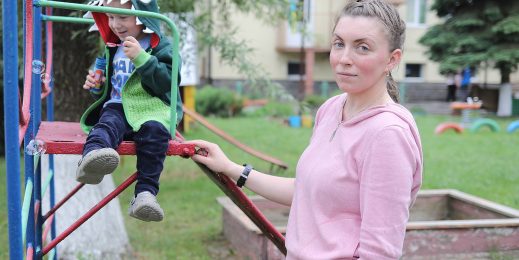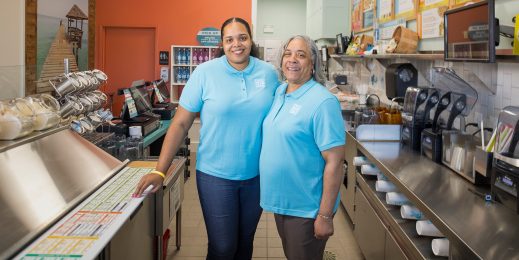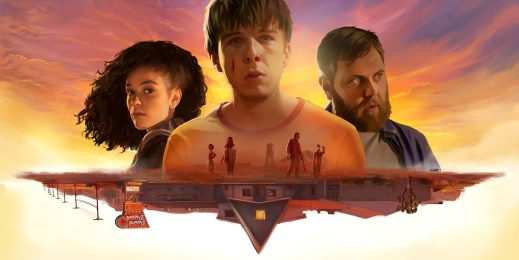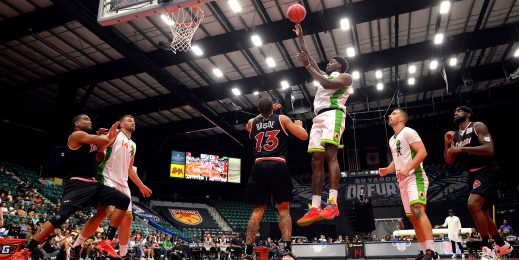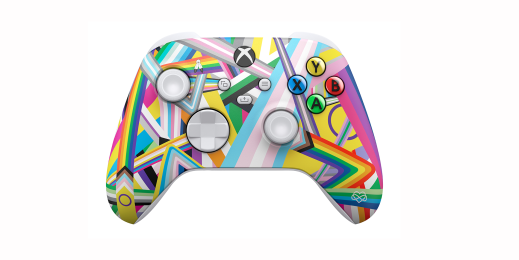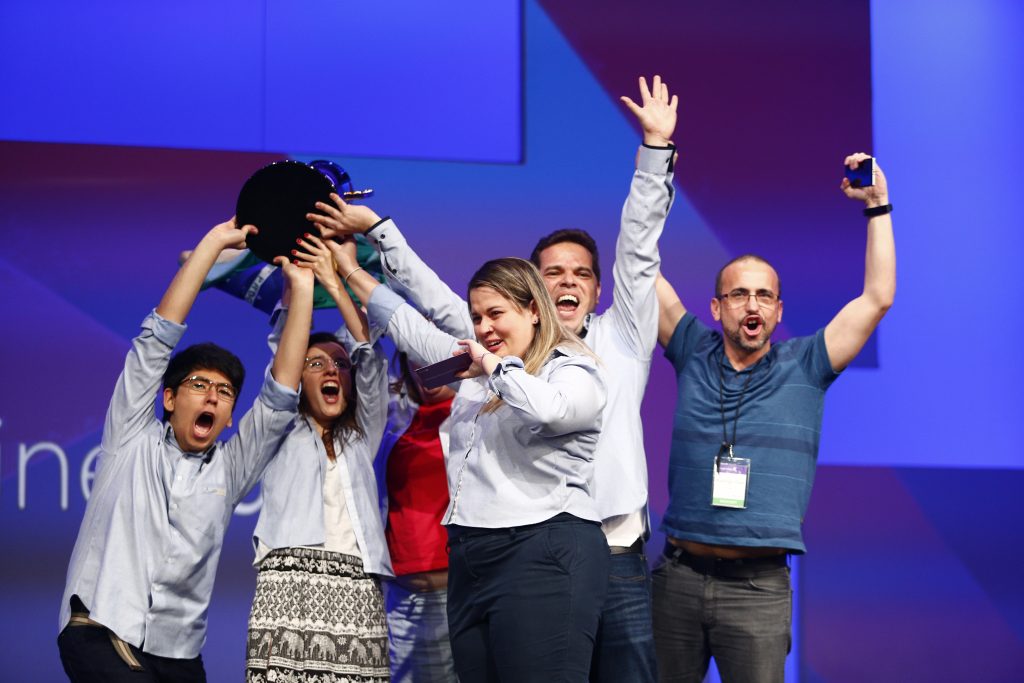
Last year’s Imagine Cup winners look to launch a fashion business, share an artistic game and take the world to outer space
Juliana Pirani got her first sewing machine at age 13. Growing up in São Paulo, Brazil, she was interested in fashion but never envisioned the possibility of what she is about to do with it now: Start her own business with a creative idea that she hopes will transform many people’s lives.
In the year since Pirani’s team won the top prize in the Imagine Cup, Microsoft’s marquee global student technology competition, she’s been working to turn their project into a reality. She plans to launch “Clothes For Me,” an online marketplace for custom-made clothing, in the next few months.
“Before Imagine Cup, I wasn’t so sure I would be a businesswoman and open my own company. But after all the opportunities and things that have happened, it was like a path I had to pursue,” she says. “I need to see what’s there for me.”
Students from around the globe will head to Seattle later this month for the 2016 Imagine Cup World Finals to vie for more than $200,000 in cash and prizes. Each of the 35 finalist teams will showcase their projects, which include a video game about nuclear physics, a virtual reality app to help stroke patients and an idea to revolutionize digital advertising.
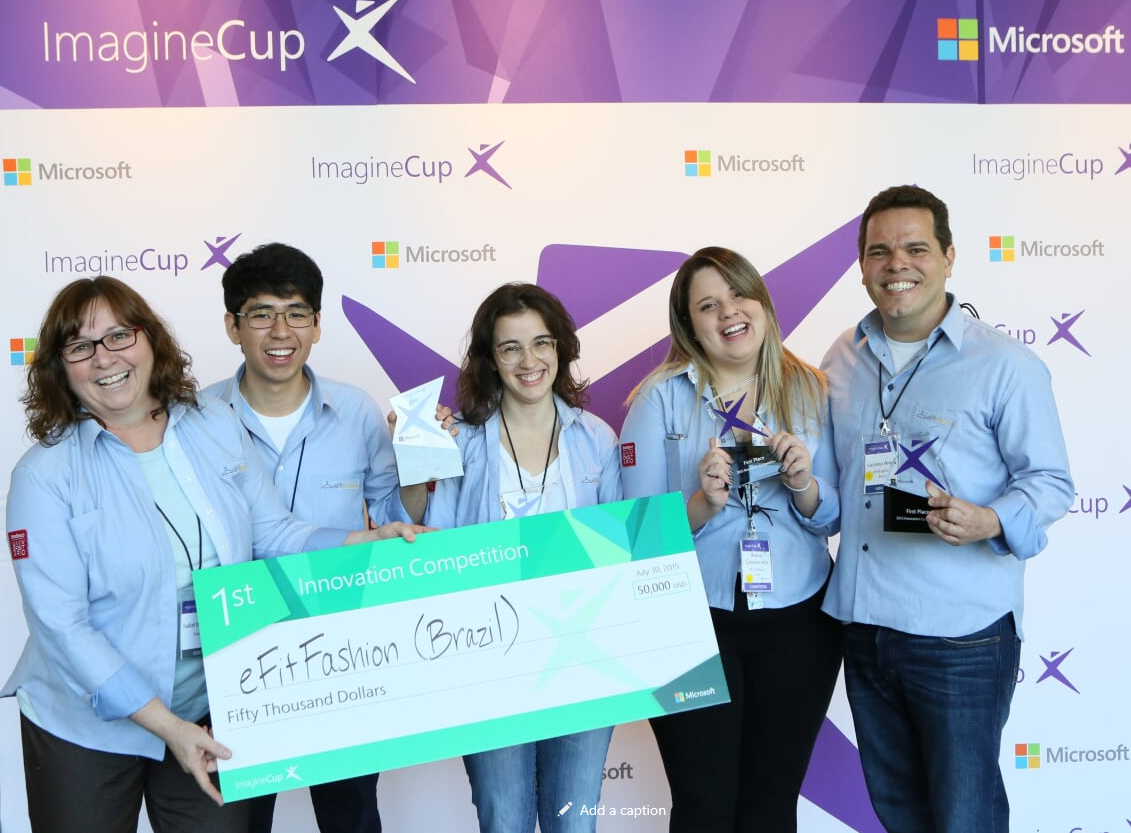
The winners of the 14th annual competition’s three main categories — Games, Innovation and World Citizenship — will take the stage at 9 a.m. PT July 29 to show off their projects. An out-of-this-world celebrity and a 2014 Imagine Cup world champion will decide the winner in an exciting final round that people around the world can watch live.
One team will win the title of Imagine Cup Champion, a private mentoring session with Microsoft CEO Satya Nadella and the coveted Imagine Cup.
Members of last year’s three first-place teams are still riding the momentum and making the most of the guidance they received from Microsoft experts and mentors along the way. Some have made big strides toward bringing their ideas to the market and others have branched into other trailblazing pursuits.
Being named Imagine Cup Champion was an incredible moment for Pirani and eFitFashion teammates Bianca Canezim Letti and Daniel Tsuha, who hugged through smiles and tears. When the excitement and flurry of media attention settled down, Pirani was as energized as ever to turn their “Clothes For Me” project into a business.
The concept uses software that customizes clothing patterns to fit each person’s measurements and connects them to seamstresses to make the garments. The idea is twofold: to help people of all body types find clothes that fit, and to give people with sewing skills a way to connect with customers.
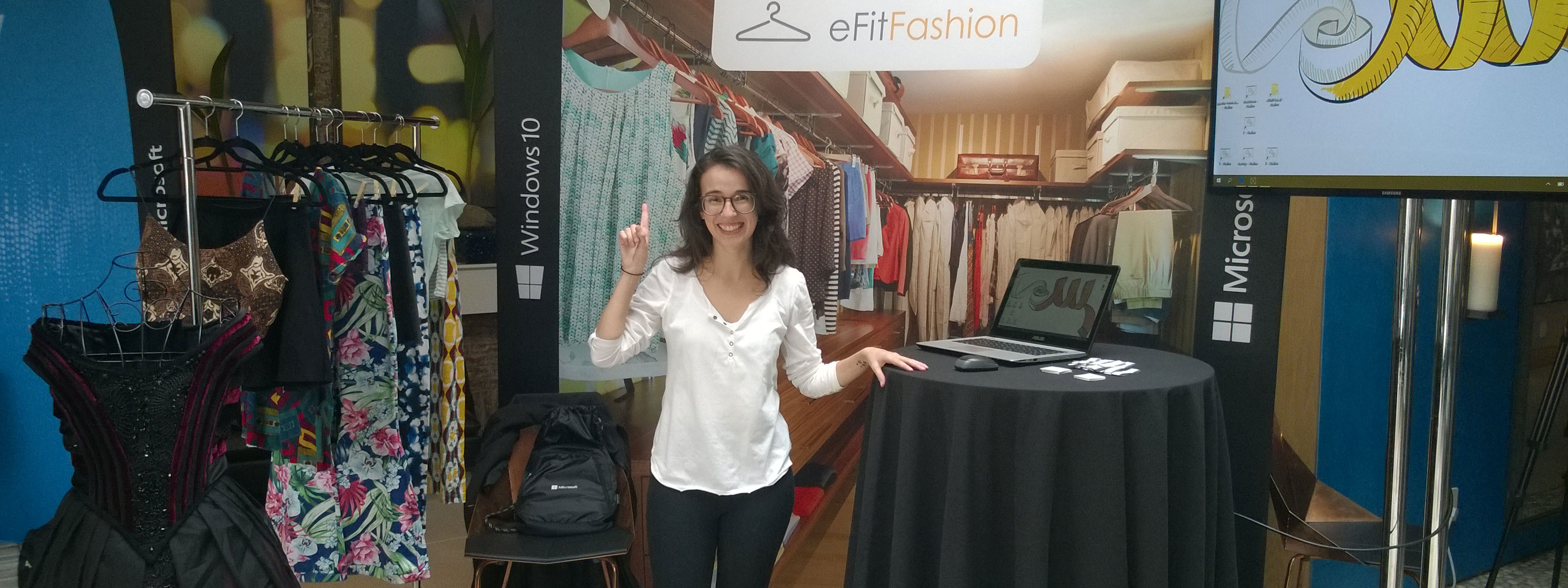
Juliana Pirani shows off the eFitFashion concept at the Windows 10 “Dream. Create. Do” Student Showcase on May 10 in New York.
Pirani is also pursuing a new idea that she plans to launch by the end of the year: She’s been working with 9- and 10-year-olds to create their own clothing lines and websites to sell them, helping them learn “everything about the process of making clothes, not just the glamour part of it,” she says.
The clothes will be made mostly by impoverished women from in and around São Paulo, some of whom live in high-risk or violent situations, helping them to use their sewing skills to find more stability and “have a channel to promote their work,” Pirani says. It’s “a project that’s a little bit different from everything that’s on the market right now.”
Pirani says Imagine Cup changed her life in more ways than she ever expected.
“The most amazing thing that happened was the opportunity to be able to transform people’s lives with this project, to go to places I’ve never been before and talk about it,” she says. “To have people say to me, ‘Wow; that’s amazing … I want to know more.’”
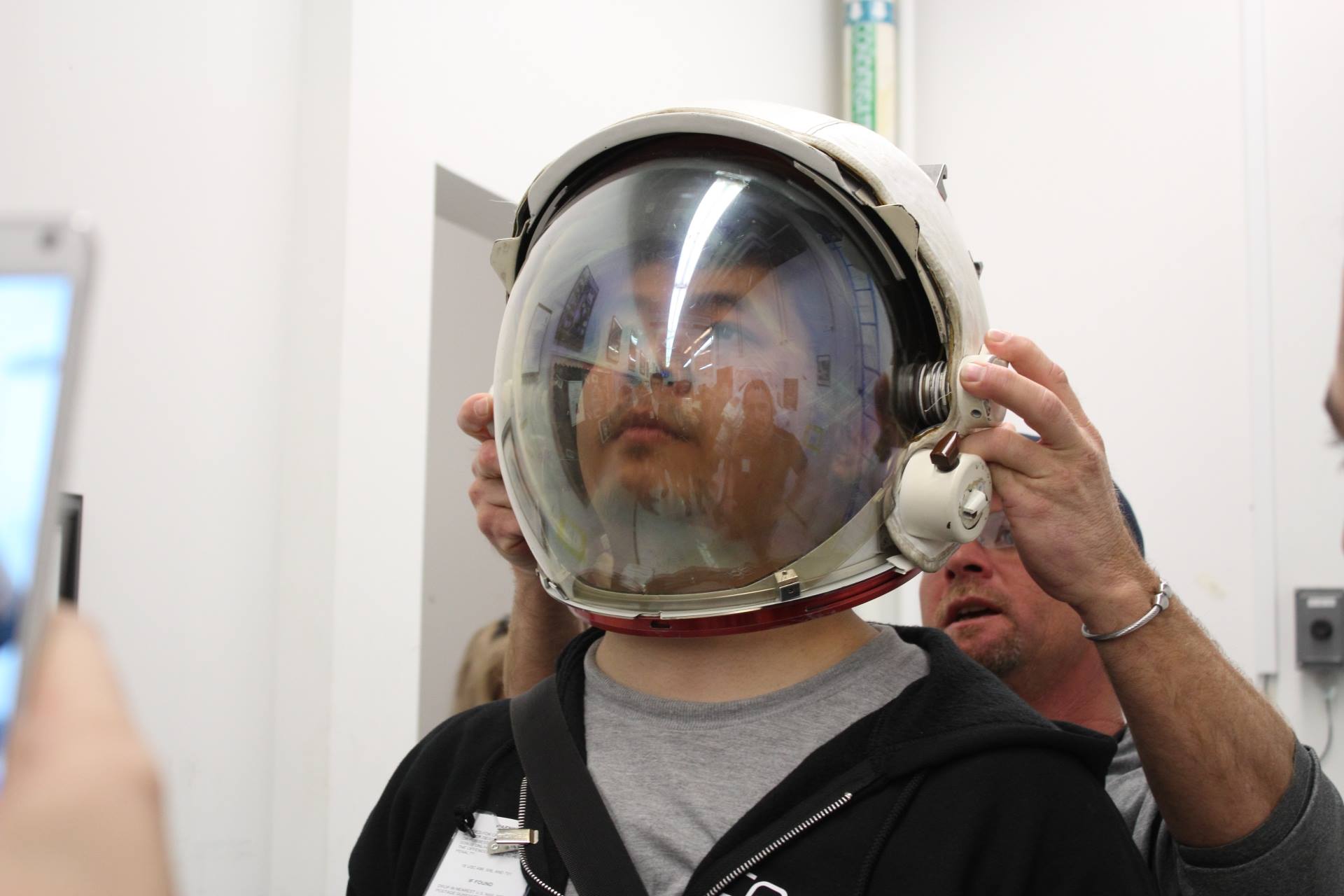
The team that took first place in last year’s World Citizenship category created Virtual Dementia Experience, a high-tech way to help caregivers better understand the perspective of people living with dementia. The Australian team is now bringing their technology to a whole new frontier: outer space.
Two members of the team, Norman Wang and Liam McGuire, are now working on a game called “Earthlight.” It began as a demo by their game studio, Opaque Media Group, that combines Microsoft’s Kinect technology and a virtual reality headset to allow users to experience the feeling of being an astronaut on a spacewalk outside the International Space Station.
The project captivated many and caught the attention of a few people at NASA — and eventually evolved into a collaboration exploring how the latest in virtual reality technology could be used to create realistic simulations for astronaut training, Wang says.
“Being able to say that we collaborate with NASA to help train the next generation of astronauts is a profoundly rewarding thing to have happen,” Wang says.
Wang and McGuire got the chance to visit NASA’s famed Johnson Space Center in Houston in March. There, they spoke with various people including training experts and astronauts to learn everything from the astronauts’ most memorable moments to the sounds they heard in space.
They toured mock-ups of the International Space Station and got an up-close look at spacesuits and other equipment. The goal, Wang says, was “to get a better sense of what life is like to be an astronaut,” and make the game as authentic as possible.
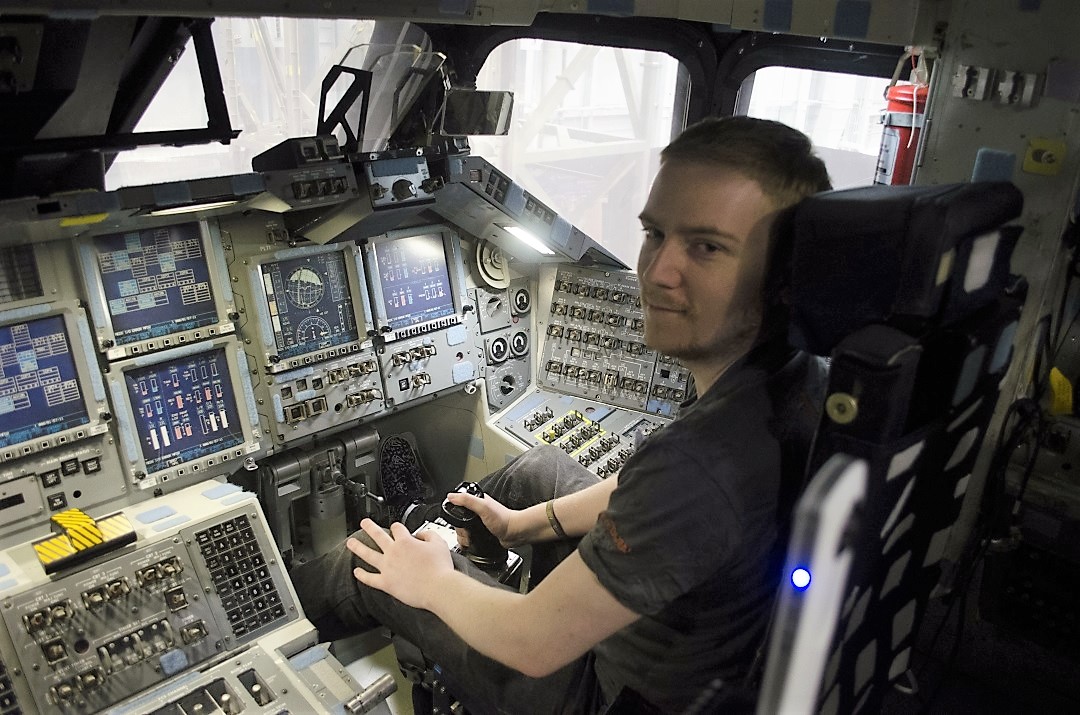
They hope to release “Earthlight” by the end of the year. The other two members of the 2015 Imagine Cup team, Chris Mackenzie and James Bonner, are now working on other projects for Opaque Media.
Despite obvious differences, “Earthlight” shares some of the technology and the basic idea of the team’s Imagine Cup-winning project: They both “create an experience that is so far from your normal, daily perceptions of the world,” Wang says.
The Opaque team developed Virtual Dementia Experience (VDE) for Alzheimer’s Australia Vic, a dementia education and advocacy organization, to simulate what everyday tasks are like for people with dementia. More than 3,000 caregivers have already undergone training using it, says Alzheimer’s Australia Vic’s Tanya Petrovich, and the impact “has been phenomenal.”
Sometimes caregivers “are so focused on the task, they’re not thinking about what is happening with the person living with dementia,” Petrovich says. “That’s what this experience does. It shifts their focus from the task to the person.”
Microsoft brought the VDE team to Seattle for a weeklong boot camp, where they got a wealth of valuable information about social good enterprises, intellectual property, business development and “really useful legal advice that was very tailored to our specific case,” Wang says.
But perhaps the most important thing Imagine Cup gave them was the confidence and experience to help them with future endeavors.
“The competition was intense, and it taught us to be prepared and be flexible and really know the ins and outs of what we’re talking about,” Wang says. “It fundamentally changed how we present information.”
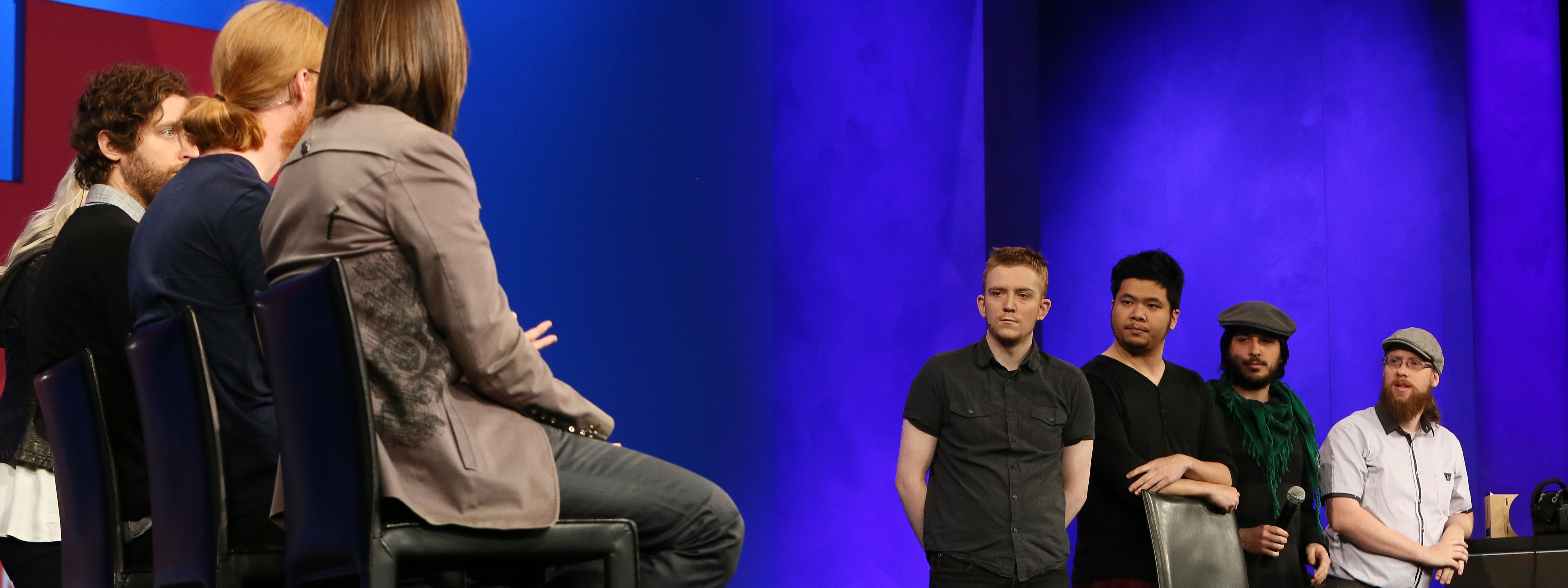
Virtual Dementia Experience team members Liam McGuire, Norman Wang, Chris Mackenzie and James Bonner face the judges in the 2015 Imagine Cup Championship.
Imagine Cup was also life-changing for members of the Russian team that won the Games category last year. Alexander Vilassak, Daria Kruzhinskaya and Dari Chernova — a trio that had zero prior experience making games — now plan to publish their first game later this year.
“After Imagine Cup, it gave us an opportunity to make our studio and do what we want to do with the game,” Vilassak says. “It’s a dream job when … you don’t have any rules or directors to get in the way of what you want to do.”
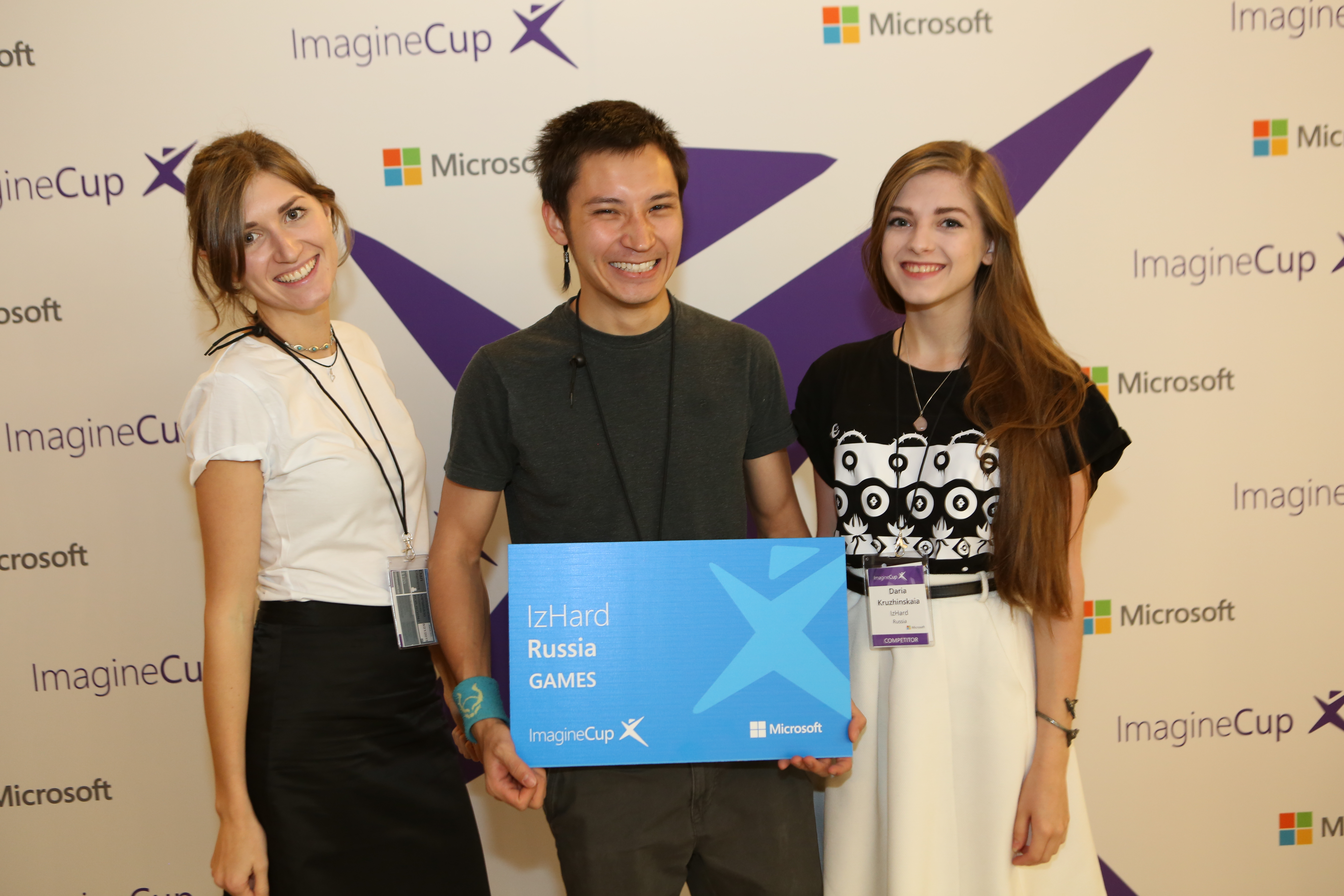
Their game, “OVIVO,” takes place in a dual world of artistic black-and-white spaces where gravity works in opposite directions. Players travel through the game, trying to find a symbol on each level while navigating mesmerizing contours, blooming tree branches and other artistically graceful obstacles.
The game got its start in 2014, when Vilassak showed up at an Imagine Cup hackathon in Saint Petersburg with the idea to create a black-and-white puzzle platformer. There, he met Kruzhinskaya and Chernova, who liked his idea. The three spent 24 hours building their first prototype and were stunned to see it win.
They came up with a quirky team name based on a line from a Lord of the Rings movie, “They’re taking the hobbits to Isengard,” though their rendition was slightly off: Theytakingahobitstoisenhard. Unfortunately, no one could spell it. They shortened it to IzHard; it’s now the name of their game studio.
After that first win, Vilassak says, everything seemed to happen in a whirlwind: Preparing for and winning Imagine Cup Russia. Traveling to the United States — an exciting first for Kruzhinskaya and Chernova — to compete in World Finals. Their thrilling win there, and a $50,000 prize. “We felt like rock stars!” Vilassak says.
IzHard studio’s game, “OVIVO.”
A Moscow-based publisher offered to publish their game, a satisfying endorsement, but the team later decided they wanted the freedom to do things their own way. The prize money helped them create their studio and attend video game conferences in Tel Aviv and Singapore.
As part of their Imagine Cup prize, Microsoft flew the three to Boston in April to attend PAX East, a massive annual gaming event, to demo their game — a way to get major exposure and unparalleled feedback from the most dedicated gamers in the world.
Imagine Cup Competition Manager Pablo Veramendi helped the team showcase “OVIVO,” and the response was huge. The line grew so long at their booth that Vilassak was letting people play the game on his phone, and Veramendi was lending out his tablet.
Vilassak was expecting a barrage of critiques from developers but instead heard from many that the game had “a very cool and simple design, with amazing style,” he recalls. “It is very exciting when people with fire in their eyes play your game and they love it.”
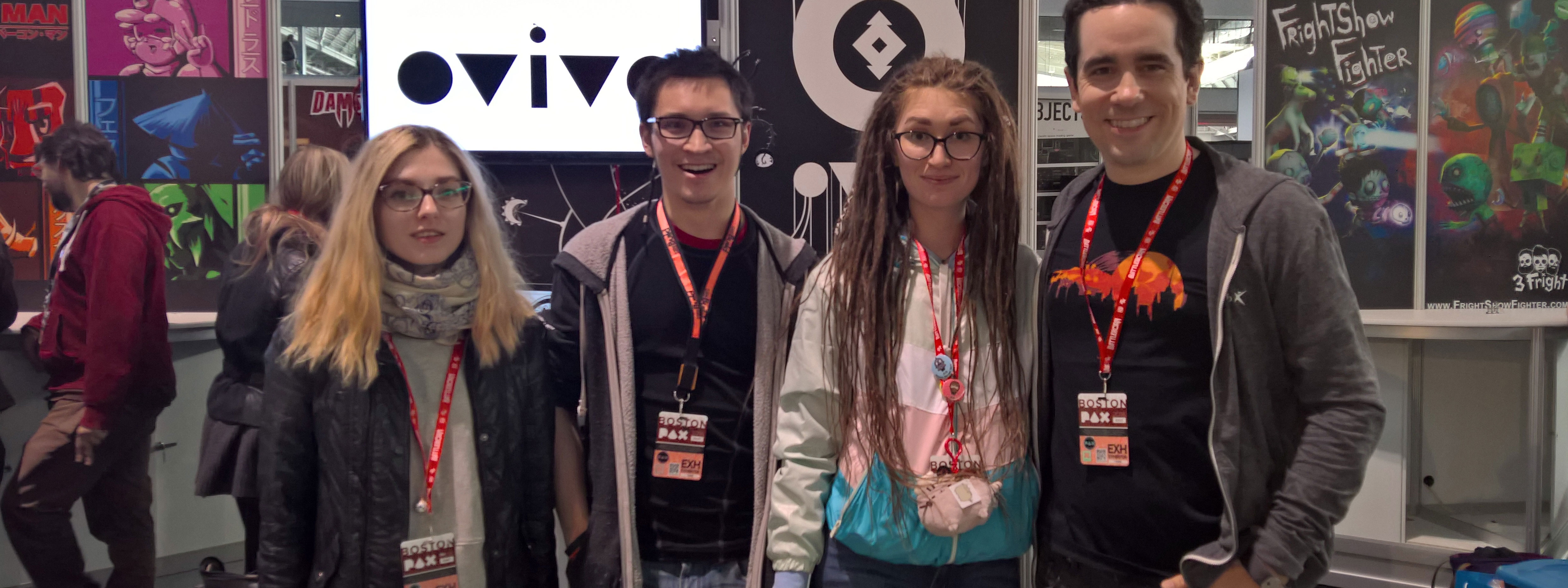
Team IzHard members Dari Chernova, Alexander Vilassak and Daria Kruzhinskaya showcase “OVIVO” at PAX East with Microsoft Imagine Cup Competition Manager Pablo Veramendi, at far right.
In May, the team put “OVIVO” on Steam Greenlight, which lets the gaming community decide whether a game is good enough to be released on its platform, and received the coveted Greenlight in just 10 days.
They’re now finishing up some of the game’s levels, addressing some minor issues and working to make the app smaller so that it takes up less storage space on PC and mobile devices. They’ve talked with a few publishers who like the game and will likely seek one out when it’s done.
Vilassak says he sometimes still can’t believe he and his teammates “are making games that we always dreamed of” after gaining so much through Imagine Cup.
“We learned a lot and got so much experience and (met) many new people,” he says. “It was the biggest journey of our life.”
Want to see more student teams like eFitFashion, Virtual Dementia Experience and IzHard in action? Be sure to tune into the Imagine Cup Awards Ceremony at 9:30 a.m. PT on July 28 to see who wins this year’s Games, Innovation and World Citizenship competitions.
Then, tune in to the Imagine Cup Championship at 9 a.m. PT on July 29 to see who wins the private mentoring session with Microsoft CEO Satya Nadella and takes home the Imagine Cup crown.
Lead photo: From left, team eFitFashion members Daniel Tsuha, Juliana Pirani and Bianca Canezim Letti hold the Imagine Cup as mentors Isabel Italiano and Luciano Araújo, and Rodrigo Dias, Microsoft audience marketing manager, far right, stand behind cheering.





